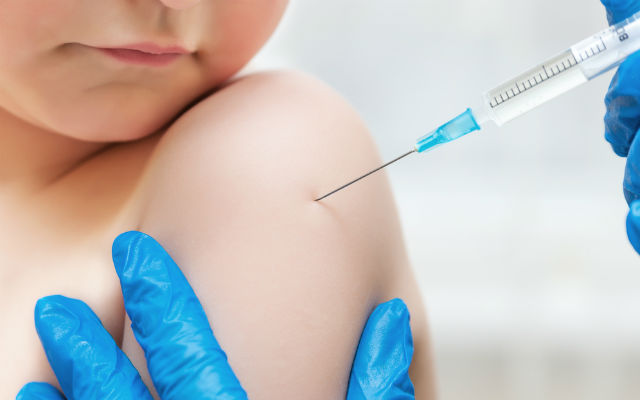Why Vaccinations Are Important
Because August is National Immunization Awareness Month, and because kids will soon be heading back to school, your concierge family practice doctors at MD 2.0 in Jupiter, Florida, thought this would be a good time to review the importance of vaccinations and to knock down some myths about them.
Even if the school system didn’t require vaccinations for all their students, it would still be crucial to have your children immunized. The U.S. Centers for Disease Control and Prevention (CDC) estimates that some 21 million hospitalizations and 732,000 deaths will be avoided among children born in the last 20 years as a result of widespread vaccines.
The CDC offers the following facts on the importance of vaccines for children:
- Newborn babies are immune to many diseases because they have antibodies they got from their mothers. However, this immunity goes away during the first year of life.
- If an unvaccinated child is exposed to a disease germ, the child’s body may not be strong enough to fight the disease. Before vaccines, many children died from diseases that vaccines now prevent, such as whooping cough, measles, and polio. Those same germs exist today, but because babies are protected by vaccines, we don’t see these diseases nearly as often.
- Immunizing individual children also helps to protect the health of our community, especially those people who cannot be immunized (children who are too young to be vaccinated, or those who can’t receive certain vaccines for medical reasons), and the small proportion of people who don’t respond to a particular vaccine.
- Vaccine-preventable diseases have a costly impact, resulting in doctor’s visits, hospitalizations, and premature deaths. Sick children can also cause parents to lose time from work.
To those who contend that vaccinations don’t work, the CDC offered this example:
In 1974, Japan had a successful pertussis (whooping cough) vaccination program, with nearly 80% of Japanese children vaccinated. That year only 393 cases of pertussis were reported in the entire country, and there were no deaths from pertussis. But then rumors began to spread that pertussis vaccination was no longer needed and that the vaccine was not safe, and by 1976 only 10% of infants were getting vaccinated. In 1979 Japan suffered a major pertussis epidemic, with more than 13,000 cases of whooping cough and 41 deaths. In 1981 the government began vaccinating with acellular pertussis vaccine, and the number of pertussis cases dropped again.
In another more recent instance closer to home, a baby in San Bernardino County, California, died last month from whooping cough, also known as pertussis. Not coincidentally, San Bernardino has the lowest rate of vaccines of pregnant women in the state. Because infants are most likely to succumb to whooping cough but are too young to be vaccinated, they can receive immunity from their mothers, assuming they receive a booster shot between 27 and 36 weeks of pregnancy. But the Los Angeles Times reported that only 38 percent of new mothers in San Bernardino county were vaccinated in 2016, compared to 52 percent of mothers across the state.
But what about the dangers of vaccines?
Fact: Vaccines do not cause autism. Period. That myth arose from a 1998 study published in the British medical journal The Lancet, which linked the measles, mumps, and rubella (MMR) vaccine to the development of autism spectrum disorder. The journal retracted the the paper in 2004 and the study’s author was later stripped of his medical license after he’d been shown to have falsified the data in the study.
But aren’t there other dangers associated with vaccinations? Scientific American reported on an August 2011 Institute of Medicine (IOM) report which had studied eight childhood vaccines along with their potential side effects. The study found that vaccines are largely safe that that side effects are usually very rare and usually minor.
Typical side effects—which usually disappear within a day or two—include swelling, redness, low-grade fever, and a small lump at the injection site. Rare negative reactions—occurring in one in a million cases—can include a severe allergic reaction or a seizure. Any medical professional who administers vaccinations is equipped to deal with these unlikely reactions.
What about spacing out vaccines?
Although some parents are concerned about lumping together too many vaccinations, the CDC schedule, endorsed by the American Academy of Pediatrics (AAP), is compiled based on research detailing when the body’s immune system is best equipped to respond to the vaccine.
In reporting on this research, Scientific American noted:
“Children’s immune systems respond to several hundred foreign substances that trigger an immune response every day. In contrast, the complete schedule of recommended childhood vaccinations includes less than 200 antigens.”
So we hope this information has helped set your mind at ease about having your children vaccinated, but if you have any questions about your own or your child’s immunizations, please don’t hesitate to talk to our concierge doctors.

